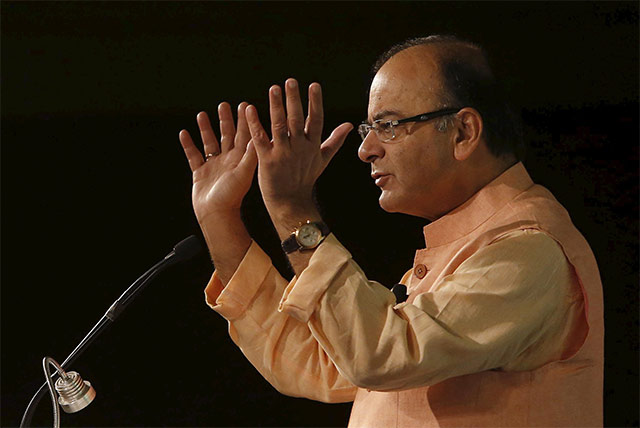
Aimed to protect innovators and creators, the Cabinet has approved the National Intellectual Property Rights, or IPR, policy.
This comes in the backdrop of India being put under the “priority watch list†of the US on account of allegations of a weak intellectual right policy.
Talking to reporters on Friday, finance minister Arun Jaitley said that the policy was approved by the Cabinet on Thursday.
The vision document of the IPR Policy, a first for India, is aimed to create synergies between all forms of intellectual property, concerned statutes and agencies. The policy notes that India is in sync with trade related intellectual property rights agreement of the World Trade Organization.
“It sets in place an institutional mechanism for implementation, monitoring and review besides aiming to incorporate and adapt global best practices to the Indian scenario,†the government said in a statement on Friday.
The department of industrial policy and promotion, under the aegis of the ministry commerce and industry, will be the nodal agency which will monitor all government departments, and will oversee formulation and implementation of all future intellectual property rights in India.
With the new policy in place, it is expected that not only traditional but also modern intellectual properties will be safeguarded, which is the need of hour given India’s massive strides towards a digital society.
The statement noted that the new policy would weave in the strengths of the government, research and development organisations, educational institutions, corporate entities including micro, small and medium enterprises, start-ups and other stakeholders.
The National Democratic Alliance government had set up a think tank to make suggestions about the required changes and a report was submitted in April 2015. The policy had been pending with the cabinet for some time now.
Experts hailed the move.
Pavan Duggal, a lawyer on intellectual property rights, applauded the government on effectively bringing in the policy and said it should have come in a long time back.
“The focus of the policy is on maintaining the balance between rights and interests of intellectual property right owners with larger public interest, which is extremely relevant for a country like India, being a repository of not just indigenous creativity and ingenuity but also traditional and oral knowledge,†he added.
The government is hoping that the new policy regime will also create an innovation-conducive environment, which stimulates creativity and innovation across sectors, and also facilitate a stable, transparent and service-oriented intellectual property right administration in the country.
Duggal, however, added that policy statements are not sufficient alone.
“There is a need to back up the same by appropriate, effective and concrete steps for implementing the policy goals envisaged in the actual world,†he said.
Like this report? Sign up for our daily newsletter to get our top reports.